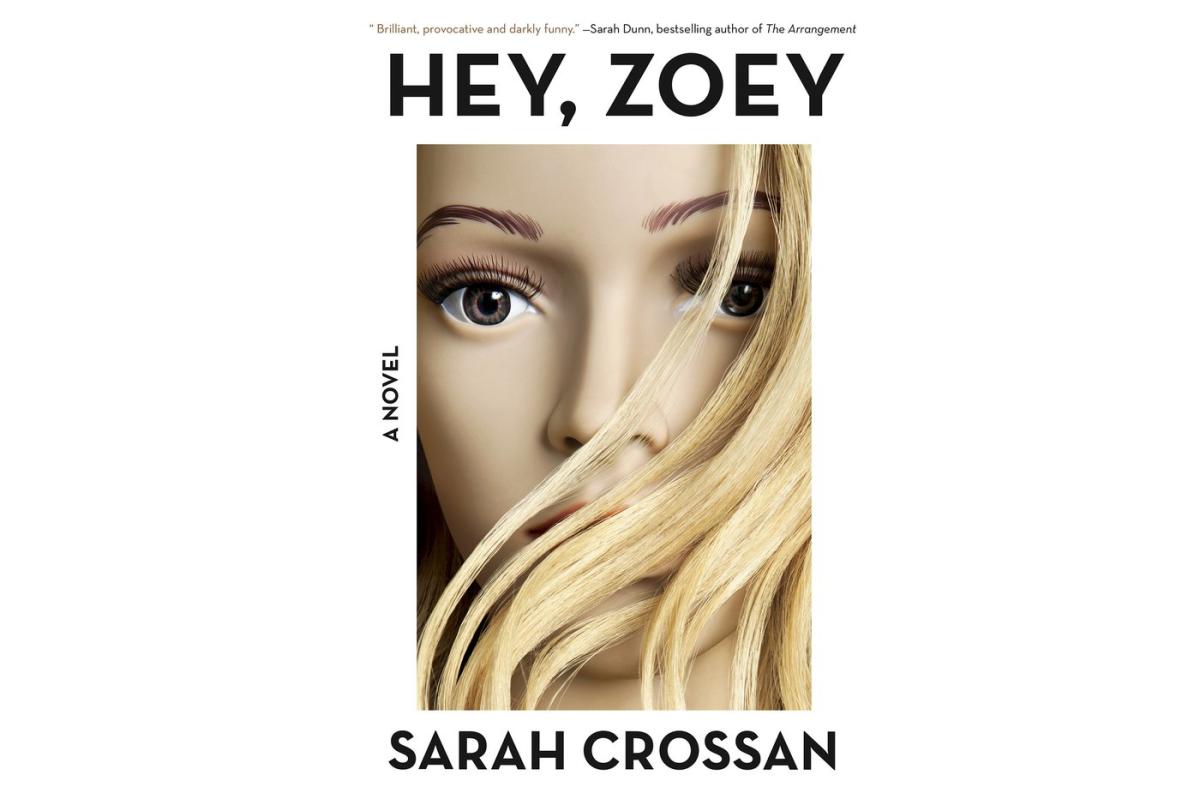“Hey, Zoey” uses questions about AI to look at women’s autonomy in a new light

Dolores is going through life when she finds a surprise in her garage that could mean the end of her marriage: a high-quality, lifelike sex doll named Zoey, equipped with artificial intelligence.
There are many avenues author Sarah Crossan can go from here—when is it cheating? What makes something human or sentient? How can we define a person’s worth?—and “Hey, Zoey” touches on all of them.
But the focus of the story is above all on women’s autonomy.
The novel jumps right into Dolores’ life with a rapid-fire succession of first-person vignettes, a mosaic of snippets that provide an overview of how we got here. Each morsel ranges from a sentence or two to a few pages long, jumping through times and places almost in a stream of consciousness, though the story never gets lost or disjointed. The bite-sized chunks make it easy to read through, but also to stop and digest when needed.
And you need to take a break every now and then.
“Hey, Zoey” starts off pretty funny, at least in a gallows humor kind of way, before turning sad and then devastating. Even the premise is a little weird: A woman whose name is sometimes shortened to Dolly keeps her husband’s sex doll, whose name is Zoey, which means life. (“Dolores,” in case you were wondering, means “sorrow”—buckle up.) There’s Dolores, who matter-of-factly gives restaurants one-star reviews based solely on lighting and music choices—like when they play too much Norah Jones—or who chastises one of her students for drawing a sexual cartoon after she admits to him that he’s a good artist. And it’s extremely British, even though Dolores and her family would immediately remind you that they’re Irish.
After lulling you into that safe place of silly jokes and banal memories, the story gets darker as the introspection becomes more and more unsettling. The subtle change, like the cooling of the bath water, is softened so that by the time you realize the water has become lukewarm, you’re already too engrossed in the story to begrudge it the warmer, funnier parts from before.
Dolores begins a conversation with Zoey, who becomes a means for her to come to terms with her own past.
We see how her parents’ relationship shaped her ideas about love and marriage. How caring for her younger sister and little cousin made her feel needed and connected. And as a teacher with countless students in her class, she feels stagnant. Is Dolores now replaceable with Zoey?
As the story progresses, you’ll begin to test your own theories about why Dolores and David’s marriage is falling apart. Their problems are buried so deep that even Dolores has no idea – yet.
Filled with microaggressions, cultural touchstones, and self-reflection, “Hey, Zoey” uses the sentience of AI to look at the issue of women’s autonomy from a new perspective.
Since Crossan has written a dozen other novels, it’s to be expected that the award-winning author’s latest work will be a gripping novel. But the real surprise and delight of Hey, Zoey is its gripping story and suspenseful entertainment.
___
AP Book Reviews: https://apnews.com/hub/book-reviews
Donna Edwards, Associated Press



